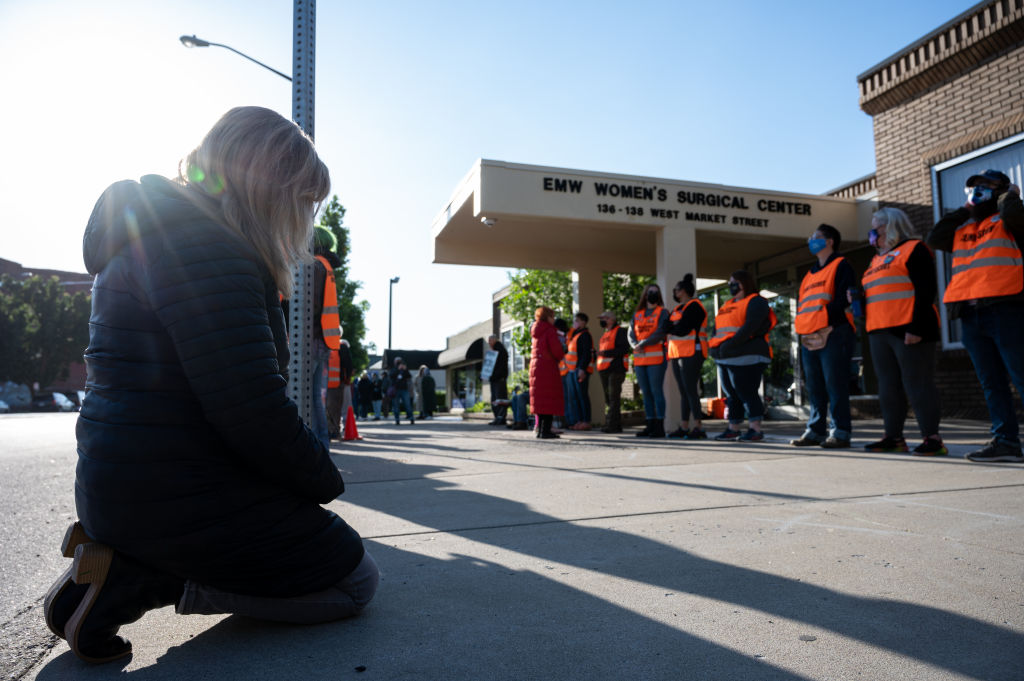A buffer zone ordinance around abortion businesses that was approved by the Louisville, Kentucky city council has been overturned by a federal court.
Last year, the Louisville Metro Council introduced an ordinance requiring a 10-foot buffer zone to be placed around the only abortion facility in the state. By September, the ordinance had passed, and EMW Women’s Surgical Center had lines painted on the sidewalk, indicating where sidewalk counselors and pro-life activists could not stand.
Yet now, that ordinance has been overturned, as a federal judge ruled it violates the First Amendment. Kentucky Right to Life and Sisters for Life had both sued against the ordinance, arguing that their rights were being violated. The ordinance banned people from even praying outside on the sidewalk. Buffer zones have previously been found unconstitutional and discriminatory.
U.S. District Judge Rebecca Grady Jennings repeatedly denied requests for injunctions against the ordinance, and Sisters for Life appealed her last ruling. This week, the Sixth Circuit Court ruled in their favor.
“Sisters for Life, several individuals, and another pro-life organization wish to offer leaflets and compassionate, if sometimes unwelcome, speech to women entering abortion clinics in Louisville, Kentucky,” Sixth Circuit Chief Judge Jeffrey Sutton wrote in the 12-page opinion. “But Louisville-Jefferson County limited their speaking and pamphleteering in buffer zones near the entrance of each clinic. Because these limits likely violate the First Amendment… we preliminarily enjoin them.”
Natalie Johnson, an attorney who argued on behalf of Louisville-Jefferson County, argued that violating First Amendment rights was necessary, due to supposed “harassment” at the abortion facility. Yet the court denied this argument.
“Keep in mind… that the goal of the plaintiffs is not to harass or protest, whether loudly or violently. The point of their speech is to offer a compassionate ear,” the ruling stated. “To this day, it remains unclear why the County has sought to suppress their speech along with those types of protests that are far more likely to hinder access to a clinic and are sometimes designed to do just that.”
Chris Wiest, the attorney who represented both Kentucky Right to Life and Sisters for Life, told the Daily Callers News Foundation that they were grateful for the vindication in court. “We are thrilled to ultimately prevail, and to vindicate the interests of our client Sisters for Life and Kentucky Right to Life’s ministries,” Wiest said. “The ordinance was unconstitutional all along, just as we repeatedly asserted.”








